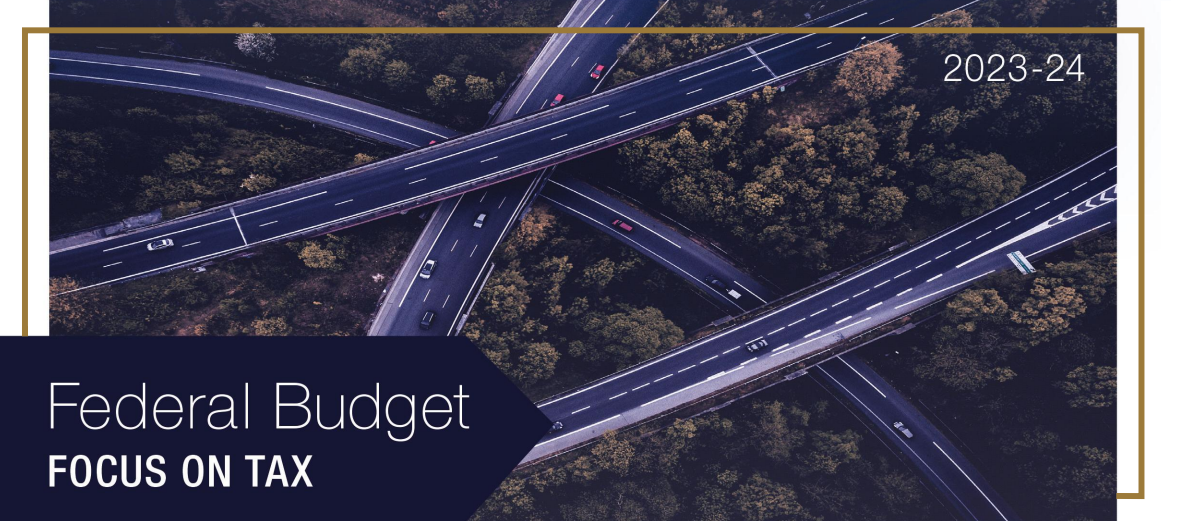May 10, 2023

Federal Budget 2023-24: Focus on tax
Tax measures were less central to this year’s Federal Budget than they have been in recent years.
While there were some new tax measures, the Budget this year was more about the first surplus in 15 years and various spending measures.
After highlighting the gloomy outlook for the global economy, Treasurer Jim Chalmers emphasised Australia’s future as an “energy superpower”, with small business to be a key beneficiary.
Energy incentives for small business
The new Small Business Energy Incentive will provide businesses with annual turnovers under $50 million with a bonus 20 per cent deduction on expenditure supporting electrification and more efficient energy use.
Up to $100,000 of total expenditure will be eligible, with the maximum bonus tax deduction being $20,000 per business.
The assets or upgrades must be first used or installed ready for use between 1 July 2023 and 30 June 2024.
Tax support continues for business
Over 2 million eligible small businesses will also enjoy welcome cashflow relief, with the government halving the increase in quarterly tax instalments for GST and income tax in 2023-24. Instalments will only increase by 6 per cent, instead of the expected 12 per cent.
While businesses may enjoy the extra cashflow, the government is also increasing efforts to reduce tax avoidance and minimisation. There will be greater scrutiny of GST returns as the ATO will receive extra resources over the next four years to promote GST compliance.
The ever-popular instant asset write-off received another year of life, with small businesses permitted to immediately deduct eligible assets costing up to $20,000 from 1 July 2023 to 30 June 2024.
Super payments crackdown
The days of businesses having access to employee super payments for a quarter are over, with employers required to pay their employees’ super at the same time they pay their wages from 1 July 2026.
The ATO picked up an additional $27 million in 2023-24 to improve its data matching capabilities and $13.2 million for a new compliance system to identify in near-real time instances of under or unpaid super. There will also be new unpaid super recovery targets set for the ATO in 2023-24.
The Budget also confirmed legislation for the new tax on earnings from super balances exceeding $3 million will be introduced to Parliament. From 1 July 2025, these earnings will attract an increased concessional tax rate of 30 per cent.
New tax incentives for housing
Businesses in the residential housing sector are now eligible for some attractive incentives, with the Budget providing two new perks.
The capital works deduction (depreciation) rate will be increased from 2.5 per cent to 4 per cent a year for eligible new build-to-rent projects, while the withholding tax rate for eligible fund payments for build-to-rent developments will be reduced from 30 per cent to 15 per cent.
Support measures for smaller business
The Budget unveiled several support measures, including timely relief for businesses’ electricity bills. From July 2023, an estimated one million eligible small businesses will receive up to $650 in assistance.
Over $23 million will also be invested to help small businesses train in-house cyber wardens to deal with cyber security attacks.
A further $392 million Industry Growth Program will be available help support small to medium sized businesses and start-ups develop new products and services.
Other tax measures
The Budget also included changes to the Petroleum Resources Rent Tax (PRRT). These will collect an additional $2.4 billion over four years by limiting to 90 per cent the proportion of PPRT assessable income that can be offset by deductions.
Tobacco excise taxes will also increase, rising by 5 per cent each year for three years from 1 September 2023.
The government is also getting behind the OECD’s push for a minimum 15 per cent tax rate for multinationals.
Despite strong lobbying, the planned third tranche of tax cuts legislated to come into effect next year survived the Budget process and as expected, the low and middle income tax offset was not extended beyond 2021-22.
Information from this article has been sourced from: https://budget.gov.au/
